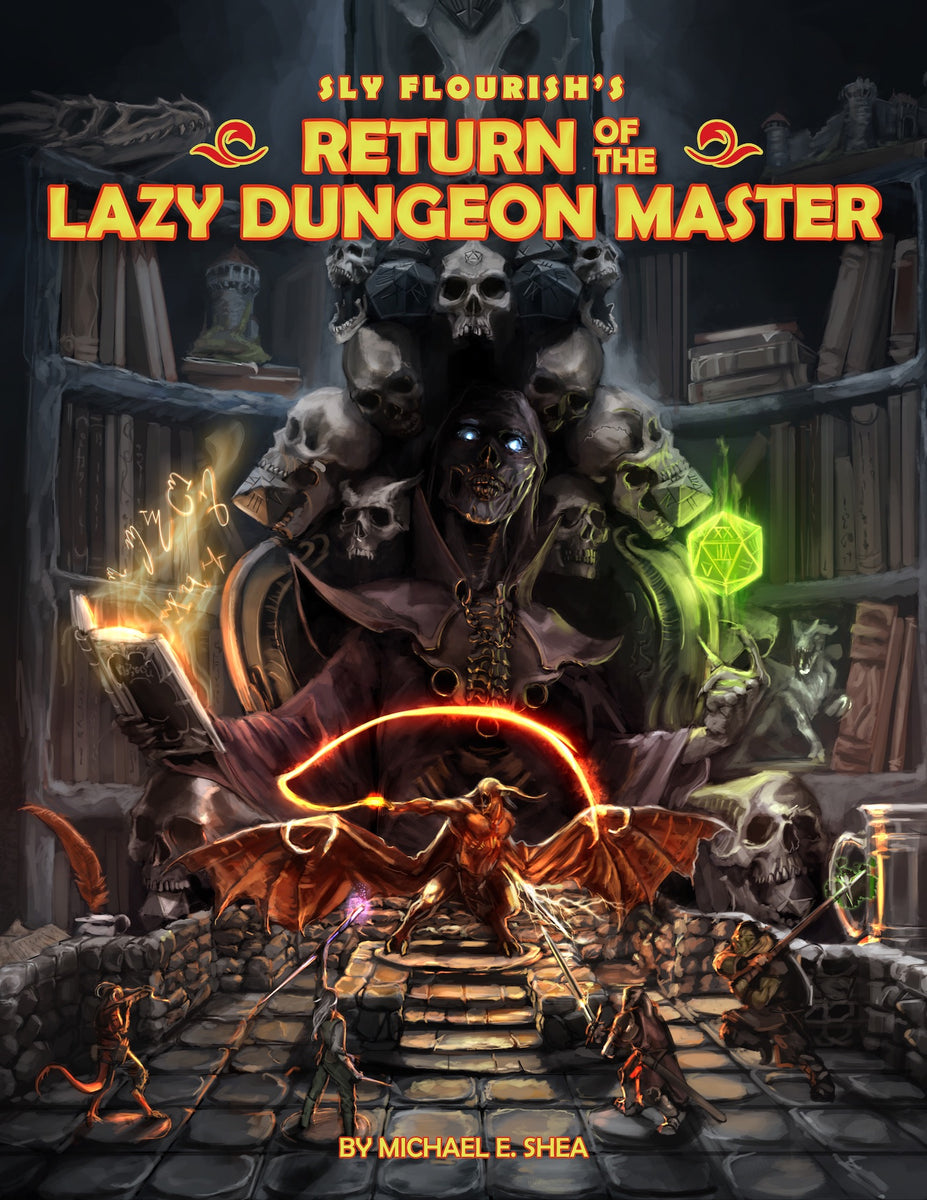You are using an out of date browser. It may not display this or other websites correctly.
You should upgrade or use an alternative browser.
You should upgrade or use an alternative browser.
D&D 5E (2014) What is your Favorite non-WotC 5E Supplement or Adventure?
- Thread starter Reynard
- Start date
Whizbang Dustyboots
Gnometown Hero
Shout out to the Cawood Publishing Monster books, especially Monsters of the City, Monsters of the Underworld and Monsters of Feyland. Each monster has an obvious place in games, often filling gaps that WotC and others have bafflingly left vacant (Monsters of the City is pretty much a must for urban campaigns, IMO), and they've got actual personality, rather than just being a pile of combat stats with no obvious hook or place in an ecosystem, which too many monster books are guilty of, IMO.
The Stygian Library is an adventure that, IMO, every fantasy RPG DM should pick up ASAP (and I could definitely see Doctor Who GMs wanting it as well). It's a procedurally generated infinite library demiplane that gets increasingly creepy and weird as one goes -- it starts with a Discworld tone and approaches something more like Wraith: The Oblivion at its deepest levels. It has extremely light OSR stats that can be easily adapted to any other game. I've used it for a Strixhaven one-shot (be careful about going into the deepest recesses of the Biblioplex) and am already scheming about using it in Shadowdark.
I will break the rules, like a bunch of other folks have, and mention a setting. Ptolus is legendary for a reason and has supported 17 years of campaigning for me and will easily support 17 more.
The Stygian Library is an adventure that, IMO, every fantasy RPG DM should pick up ASAP (and I could definitely see Doctor Who GMs wanting it as well). It's a procedurally generated infinite library demiplane that gets increasingly creepy and weird as one goes -- it starts with a Discworld tone and approaches something more like Wraith: The Oblivion at its deepest levels. It has extremely light OSR stats that can be easily adapted to any other game. I've used it for a Strixhaven one-shot (be careful about going into the deepest recesses of the Biblioplex) and am already scheming about using it in Shadowdark.
I will break the rules, like a bunch of other folks have, and mention a setting. Ptolus is legendary for a reason and has supported 17 years of campaigning for me and will easily support 17 more.
Reynard
aka Ian Eller
I have heard good things. One of these days I will pick it up.My favorite 3PP adventure is Dungeons of Drakkenheim. It's a great setting with dungeons, factions, and tools presented straightforwardly. It's definitely one of the most straight-out-of-the-box usable adventures I've ever run.
View attachment 294434
Enrico Poli1
Adventurer
As a Setting, the original Tal'Dorei.
As an Adventure, City of Brass 5e by Frog God Games.
As an Adventure, City of Brass 5e by Frog God Games.
Retros_x
Hero
100% my choice too. Reading this book made me finally a decent DM. I do not use his framework fully, but having prepared Information (Secret & Clues) to give to the player independent of the source where they might get it, was unbelievable freeing. Also tons of other good advice and tips to have your mind free as possible to concentrate on delivering a satisfying game that is based on the narrative.Return of the Lazy Dungeon Master from Mike Shea has been a literal game changer for me.

Return of the Lazy Dungeon Master
Winner of the 2019 Gold ENNIE for Best Electronic Book! Return of the Lazy Dungeon Master is an award-winning and best-selling book designed to help roleplaying game masters get more out of our RPGs by preparing less. Return of the Lazy Dungeon Master uses the experiences of thousands of GMs to...shop.slyflourish.com
Bill Zebub
“It’s probably Matt Mercer’s fault.”
Neverland, by Andrew Kolb. I haven't actually used it, but just reading it gave me a new perspective on RPGs.

Reynard
aka Ian Eller
How so?Neverland, by Andrew Kolb. I haven't actually used it, but just reading it gave me a new perspective on RPGs.
View attachment 294550
Bill Zebub
“It’s probably Matt Mercer’s fault.”
How so?
The way it is structured as a sandboxy hex-crawl but with every single hex being a unique part of the overall setting/story. And organized in a way that makes it really easy to use/reference, and evocative art for every hex.
The setting really comes to life in a way that I think, traditionally has been conveyed (or attempted, anyway) through pages and pages and pages of long-form prose.
Similar Threads
- Replies
- 59
- Views
- 5K
D&D General
Ranger Identity Patch (+)
- Replies
- 152
- Views
- 5K
- Replies
- 11
- Views
- 1K
D&D General
The Beautiful Mess of 5e
- Replies
- 221
- Views
- 20K
- Replies
- 5
- Views
- 2K
Recent & Upcoming Releases
-
June 18 2026 -
October 1 2026


